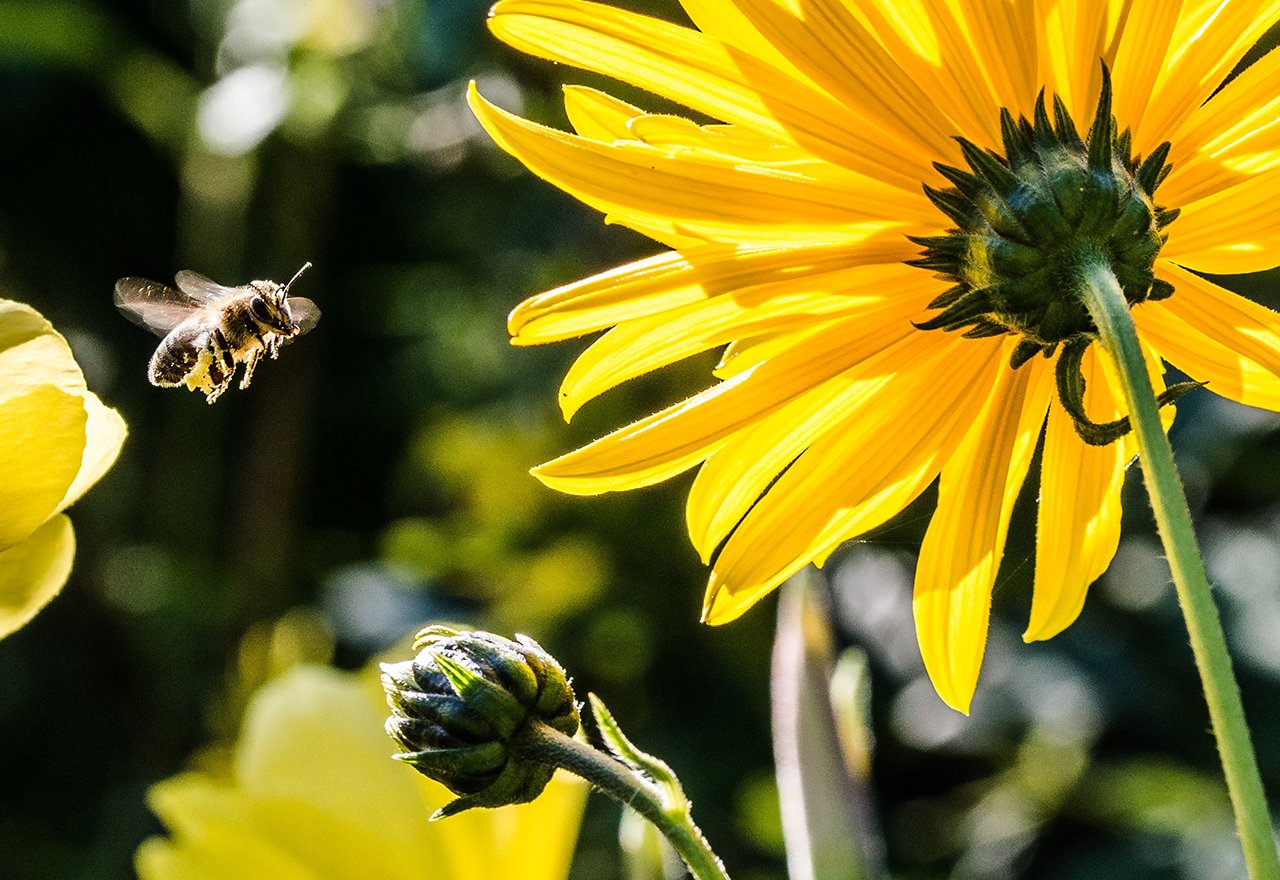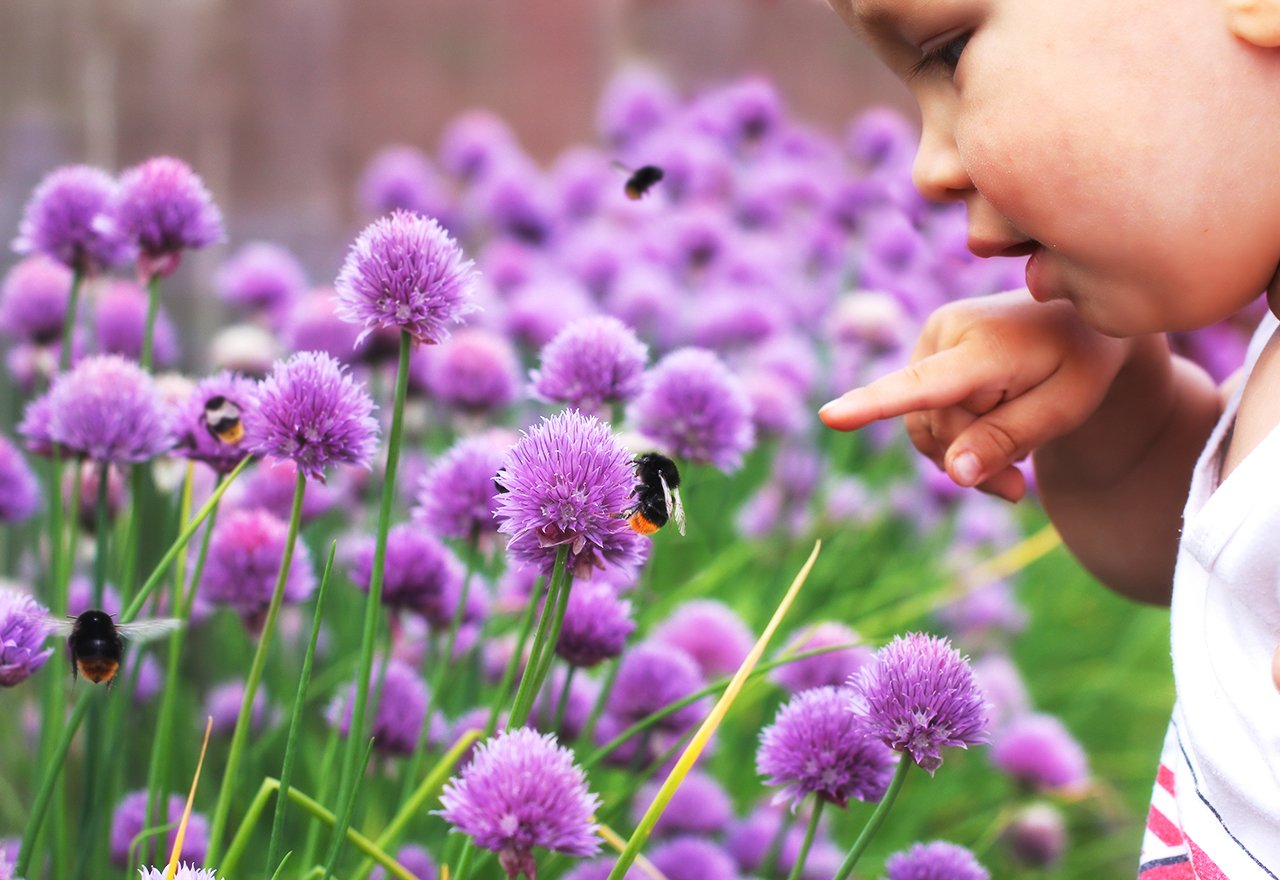Bees, Neonics, and Safer Alternatives to Insecticides
by Maureen Wise, on August 22, 2019

A recent National Geographic article came to our attention made us proud to be in this business we’re in and further confirmed that we’re doing the right thing. The populations of bees and other pollinators are declining due to the most common agricultural and home insecticides in the US, neonics. But the world doesn’t have to stand back and watch these insects go, we can use safer alternatives to insecticides while also keeping bugs at bay. It doesn’t have to be a trade off.
We all know that bees are the world’s most prolific pollinators. It’s what they’re known for and when they’re dying, our entire world’s food system is at stake.
The NatGeo article, “Insect 'apocalypse' in U.S. driven by 50x increase in toxic pesticides” took a look at the study, “An assessment of acute insecticide toxicity loading (AITL) of chemical pesticides used on agricultural land in the United States” published in the PLOS One journal.
Study Findings
The report investigated insecticide use from 1992 to 2014 in the United States. The use of some insecticides went down while others increased. The chemical group usage that went up the most were neonicotinoids, or neonics. As this increase occurred, the death of bees and their pollinator friends also increased on the same line, pointing to neonics as the culprit.
In the NatGeo article, Kendra Klein, senior staff scientist at Friends of the Earth US and one of the researchers of the study reports,”This is the second Silent Spring. Neonics are like a new DDT, except they are a thousand times more toxic to bees than DDT was.”
The study took into account how much of the insecticides were used, how long they persisted in the environment, and how toxic they are to honey bees specifically which were used to represent all insects.
Neonics are very water soluble and move around the environment easily, getting into waterways and soil. Neonics can stay in the environment for nearly three years and remain in treated plant from seed to decomposition. Because of this, they affect much more than just the destined plant and harm bugs beyond what was intended.
Neonic Alternatives
We are proud that we offer alternatives to neonics - and nothing else. This is what we do.
We can come to your home and apply products to keep bugs out safely for you or we can sell you the products for your own use. And really, we’re telling you right now what these products are so you can and buy them somewhere else - shop around. Our bottom line is that we want to keep kids, pets, bees and all of their buddies safe. Education is as much our business as green lawn care is.

Here’s our choice list of natural alternatives to keep your grass healthy while combating bugs:
- Beneficial Nematodes are microscopic organisms that live in the soil. There are nematodes that are not so beneficial too but if you boost your friendly nematodes, grubs (Japanese beetle larvae), feas, Black Vine Weevils, and ticks won’t we welcome. We sell beneficial nematodes in our store to cover your whole yard.
- Diatomaceous Earth is soft rock that has been ground into a power. It will help keep bugs away both inside and outside your home including ants, mites, spiders, flies and even bed bugs. Diatomaceous Earth will kill the bugs but not spread into the environment the way that neonics will, harming other friendly insects. Check our our favored line of Diatomaceous Earth in our store.
- Neem oil is our go-to all purpose insecticide, miticide, fungicide for organic gardening that can be applied safely to any plant. It is an oil made from neem seeds. We also recommend Neem Oil shampoo for pets to keep away mosquitoes. Find our favorite Neem Oil brands in our store.
- Cedarcide Granules can be used as another layer of your bug-barrier. Pretty much all inspects don’t like the smell and will stay away, just like old fashioned cedar chests! We sell bags of cedar chips/ granuels in our store.
- Spinosad is made from bacteria in soil and is toxic to insects. After ingesting the substance, insects will die but it will not persist in the environment and harm other beneficial insects. Find our choice brand of Spinosad in our store.
Your Food’s Impact
Additionally, while you are using greener methods to keep bugs out of your house and yard, support farmers and growers who do not use neonics. Buy organic produce that uses Earth-friendly bug barriers. Talk directly to the sellers at your farmer’s market about what they put on their crops. Agriculture uses much more insecticides than individual homes and you can make a difference in what you purchase.
So tell us what you’ll be changing in your response to non-friendly bugs. Will you try safer alternatives to insecticides that you haven’t used in the past? Let us know on Facebook or drop us an email! We’d love to hear from you!













